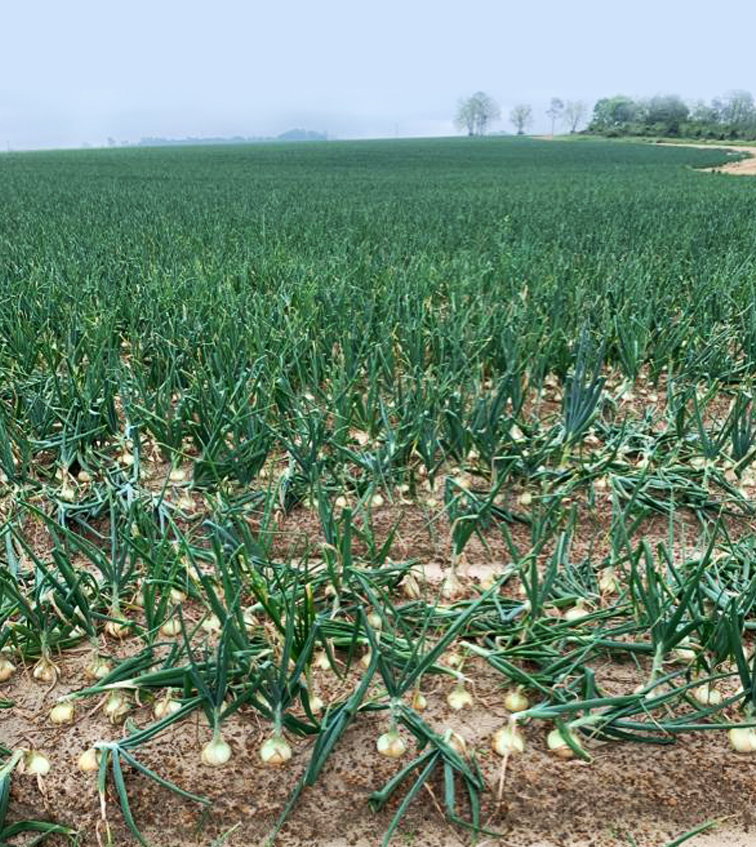The coronavirus has hit the U.S. food supply if American farmers don’t have enough skilled workers.

By Gaston Marquevich, CEO of Generations Farms
Maybe you have never thought about it, but many of the fruits and vegetables you consume every day were planted and harvested by foreign seasonal workers who come into the US every year to the relentless work essential to produce the country’s food supply.
These are legal workers holding H-2A visas, specifically issued to fill agricultural jobs on American farms. Almost all of them – about 250,000 in total – are men and women from Mexico and other central American countries.
Optimum Agriculture and Generation Farms have facilitated more than 1,000 visas for Latino farm workers in Florida and Georgia, and mid-March is the time of year when many of them make the pilgrimage to the U.S. consulate in Monterrey, in northern Mexico, to apply for this specific visa. But now, due to the Coronavirus outbreak, all consulate activities have ceased completely. To put this in no uncertain terms: this measure puts the agricultural industry in danger and could lead to country-wide shortages of fruits and vegetables if not enough people can cross the border and start working – and soon.
“An interruption to the processing of agricultural worker visas will undoubtedly cause a significant disruption to the U.S. food supply,” a coalition of agriculture trade groups wrote in a letter on Tuesday to Secretary of State Mike Pompeo, urging the federal government to process all H-2A applications as emergency visas. Two House Republicans also sent a letter to Pompeo, voicing concerns.
A partial solution being implemented by the Immigration Service is to allow agricultural workers who had already been in the U.S. in 2019 to re-enter without having to go through the consular process again. However, this does nothing to reactivate the halt of all new applications. “This could have a very serious impact on the flow of fresh fruits and vegetables to American stores in the next several months,” said Dave Puglia, President and CEO of the Western Growers Association.
The spread of Coronavirus has already hit agriculture markets hard, especially livestock sectors that fear weak demand as restaurants close in response to the pandemic. The U.S. Federal Reserve Bank lowered its benchmark interest rate by a full percentage point on Sunday, March 15th, down to near zero percent. This action should reduce the interest cost of the loans that farms need to operate – but only if farmers can get them in the face of persistent low commodity prices.
Not only would this be disastrous for farmers who prepare to harvest their year’s crop, the current policies will have much larger ripple effects. Even if H-2A visas can be processed as emergency visas, as requested as a stop-gap measure, there would still be a mandatory 14-day quarantine for workers coming in. Moreover, these workers usually live all together in tight quarters where they share everything, which means they would be highly exposed to the virus unless other living arrangements were made, at least for the quarantine period.
Some have argued that with people all over the U.S. being laid-off, farmers could get American citizens to fill these positions. In fact, current law forces them to search for local workers before hiring foreign ones, but these searches have not yielded wide results, since these jobs are temporary, located in remote areas requiring on-site living, long hours, and punishing conditions. Moreover, the number of agricultural workers coming into the US for yearly harvests has doubled in the last five years; the need has increased, not decreased. While it’s possible that domestic workers could take some of those jobs now, “it’s not something we’ve ever been able to count on,” Puglia said.
With the State Department’s announcement to suspend all processing of new, non-emergency visa applications in Mexico, U.S. farms and ranches could face a serious labor shortage at a critical time for planting and harvesting crops – interrupting a time-sensitive process essential to the domestic food supply. If anything has emerged as a clear reality in amid the haze of this Coronavirus pandemic, it is that we are all connected. Government action matters and will mark trends that set us up for defeat or success on a large scale. U.S agriculture depends on these more than a quarter-million H-2A workers every year. And the Farm Bureau, along with all Americans, depend on our government to find a safe, responsible way to ensure these skilled workers can come to our farms and ranches, so that our food can continue to come to our grocery store shelves, and to our tables.

Gaston Marquevic
Gaston Marquevich is the Founder and Partner of Optimum Agriculture, LLC and CEO of Generation Farms. He has extensive experience in investment banking and asset management. Gaston holds an MBA in Finance and a Bachelor in Economics from the University of Buenos Aires. Gaston Marquevich can be contacted at gmarquevich@generationfarms.com
Scott Ellyson, CEO of East West Manufacturing, brings decades of global manufacturing and supply chain leadership to the conversation. In this episode, he shares practical insights on scaling operations, navigating complexity, and building resilient manufacturing networks in an increasingly connected world.